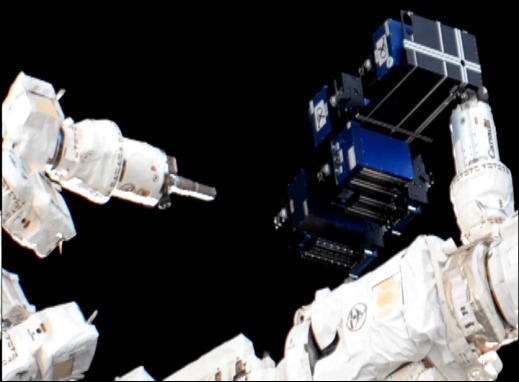Barley seeds currently on an external platform of the ISS will come back to Earth for science and scotch
By Jackie Clark
Staff Writer
Farms.com
What do agriculture, single-malt whiskey and the International Space Station (ISS) have in common? They’re all part of an ongoing research project conducted by Dr. Mike Dixon, professor and director of the Controlled Environment Systems Research Facility at the University of Guelph.
Dixon has taken barley seeds donated by the Chivas Brothers Ltd., owners of the Glenlivet distillery in Scotland, and sent those seeds to the ISS.
The goal is to “investigate the environmental challenge of putting plants in space,” he said.
“We’ve been working on life support requirement for space for 25 years in Guelph now. We’ve got one of the world’s leading research programs in this little niche field of growing plants in space,” Dixon explained. “The selection of barley is not accidental. Barley is one of the candidate crops for human space exploration.”
His personal interest in scotch drives the distillery connection.
“I spent 11 years as one of the conveners of a malt whiskey tasting society here in Guelph,” Dixon said. Two years ago he discussed the project with folks from the Glenlivet distillery.
“They agreed to sponsor this flight to the ISS,” he added.

Last week the seeds were deployed onto the Materials International Space Station Experiment (MISSE), an external platform, by the Canadarm. This process is pictured above.
“They’ll spend six months exposed there, and then they’ll come back to me here at the University of Guelph and we will do germination trials,” Dixon explained.
One objective is to “figure out what kind of environmental challenge that exposure presented to the seeds. Quite frankly I don’t expect them to do very well.”
The seeds are being exposed to radiation and dramatic temperature swings on the MISSE platform.
“We’ve tested seeds under all kinds of strange conditions and they seem to come bouncing back, but we’ll see,” Dixon added. In a previous, education and outreach-based project called Tomatosphere, researchers “put some seeds on the MISSE platform. And lo and behold they came back, and some of them germinated.”
Typically, “the MISSE platform is deploying circuits, hardware, sensor technology, just to see if they’re robust enough to deal with six months in the harsh environment of space. But biological payloads we don’t expect to do as well,” he explained. The survival of Tomatosphere seeds “is a very significant scientific finding. Your life support machine, your plants can manage to survive those kinds of totally extreme environment conditions and still come back and support life.”
NASA also currently has seeds on the MISSE platform.
“We’re sharing data with the NASA group,” Dixon said. The researchers investigating growing plants in space are a close-knit and collaborative research community.
“It’s a pretty small family internationally,” he added.
In this project, some of the barley seeds will remain inside the ISS.
“Those will come back and we will multiply that seedlot to get it up to an appreciable bag of seeds and then plant some barley and make some scotch,” Dixon explained.
At the same time, “we’re developing the technology and the design criteria to grow barley on the moon,” he added. “Were working with the Canadian space agency right now to develop that mission.”
NASA photo